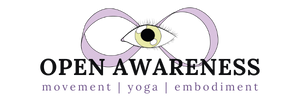12 Oct Empowering You

Let me first tell you about this whole conspiracy theory/wellness thing that’s come up.
I recently read a book written in the 90s by a Dartmouth Medical School educated doctor (qualified MD and everything) and it turns out she’s now using social media to convince her followers to believe in conspiracy theories that straight up dismiss efficacious science.
She appears to have gone off the deep end. Unfortunately, this isn’t an isolated occurrence of such absurdity.
There is so much information and so many people out there who are offering up their help in infographics, YouTube videos, programs, and private appointments. You already know that some of that information is bunk and some of those people are misguided, however well-meaning.
You probably also know that people tend to wait until a crisis point to reach out for help, which is a vulnerable place to be. And in crisis we very much want to believe in big claims and quick healing.
So I just felt like maybe today was a good day to remind you of your personal power.
Here it goes.
No one can know your body and mind better than you.
By becoming more aware of the subtitles of your somatic (felt) experience you’re better able to understand your needs. You come to know your body and mind better.
Being able to drop into your body, feel, and describe what you’re feeling also means you can tell whether the tool you’re trying has a positive or negative effect. Do I feel better, worse, or no change after doing that stretch/exercise/meditation?
With this self knowledge you can fine-tune your practice, the things you do that set you up for maximum comfort, ease, and resiliency each day.
Your at-home, personal practice is powerful. You’ve got your self-awareness and your toolbox of techniques and so you’re set to prescribe yourself the practice that serves you.
Along with that, you know when it’s time to reach out to someone to learn a new tool, or get treatment that requires expertise beyond your training.
When something comes up that you need outside help with, you’ll use your self-knowledge to interview potential providers: mental health therapists, doctors, yoga teachers, massage therapists, acupuncturists…anyone you recruit on your care team.
Your self-reporting connects with their expertise and you wind up with a better plan of action. You’re in the driver’s seat of your own health and well-being.
We all need help from other people sometimes. Some things to remember when looking for it:
- A healer “heals you” by awakening you to your own capacity to heal. You heal yourself with their support.
- A teacher’s job is to share information, educate you, and support your exploration as you learn and practice. If you don’t get the explanation you need, do your research. Have multiple teachers.
- A coach isn’t there to make decisions for you, but to guide you to ask and answer your own questions. They can give you structure and healthy boundaries, and should support you in keeping your eyes on your own goals.
- The medical sphere is outside my scope of practice, but I can tell you this: You should feel trust for your doctors and that your concerns are listened to and questions answered. The relationship matters. If you don’t feel trust, multiple opinions are valuable.
You’re in the driver’s seat and you get to pick your own support team. Chat with your family and friends about it! Social media bubbles can make the absurd start to seem normal. When we stay in touch we’ve got more BS detectors sniffing out the fishy stuff.
——
Sign up for the Open Awareness Yoga Newsletter
[mc4wp_form id=”1107″]
